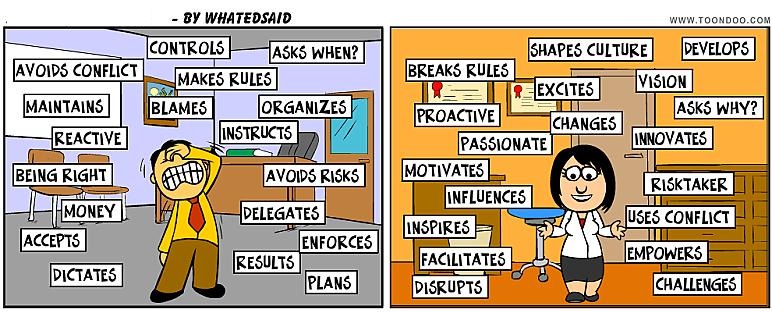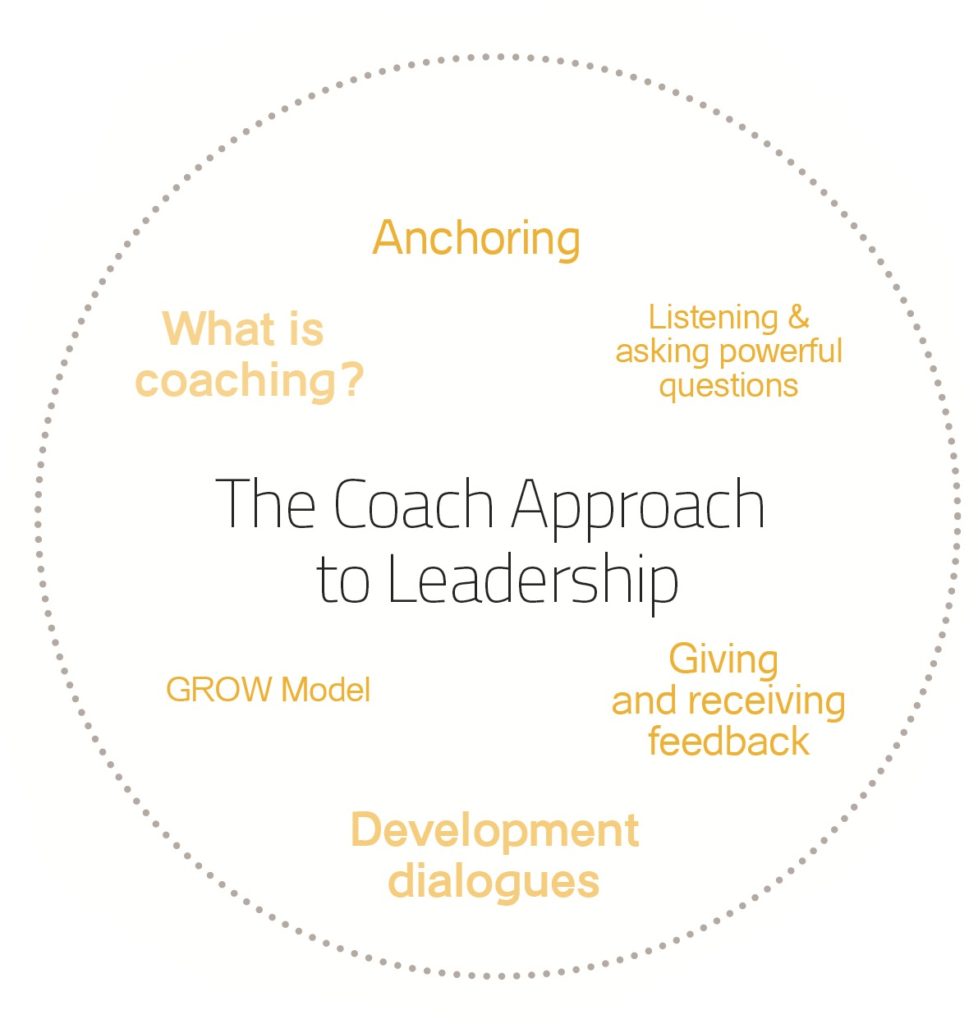by Sam, Management 3.0 Team
When I decided to become a coach I thought the transition would be easy. I’d been giving advice to people my entire life and it seemed liked a natural transition to start doing it for a living. I wanted to help people be happier at work, more productive and live more fulfilling lives. I assumed it would be a piece of cake….How wrong I was!
Looking back at how I handled my first coaching client, knowing what I do now, I wonder how he stayed with me for several months. We used to have long chats where I would basically tell him what I thought he needed to do. I’d ask questions, but ultimately he’d want my advice and so I’d give it. I left each conversation feeling like I’d said everything I wanted to say and he’d take notes and tell me that he’d do the homework, which I assigned. He rarely did his ‘homework’ and although he made some changes in his life, I was never sure if they were the ones he actually wanted to be making.
It wasn’t until I started doing more research and gained further training in the field, that I realized I had it all wrong. Most people who hear about coaching for the first time usually aren’t clear on exactly what it entails. When I took my course to become accredited, a lot of attendees in the week-long program said they were excellent advice givers and that’s why they wanted to pursue the career.
What I’ve learned over the years however, is that giving advice has nothing to do with coaching. In fact those who give less advice are the most successful coaches. The skills and approaches I’ve learned through my years of working with leaders, executives, teams and individuals have not only influenced my work, but they’ve affected my personal life. It’s changed how I interact in my relationship and with family and friends.

In this blog I’ll share the top five skills I’ve learned through coaching, skills that have greatly impacted my life.
Five ways to use the Coach Approach in your everyday life:
#1 Approach – Take yourself out of the Conversation: This might sound counter-productive and it’s definitely counter-intuitive, but the biggest barrier to having effective and fruitful conversations, is ourselves. How often do you speak to someone where you’re off in your own head and can’t remember that last two minutes of the conversation? We do this all the time. We’re not focused and when we are focused we’re thinking about what we want to say next and not paying enough attention to what the other person is saying. Remove yourself from the conversation and just listen to the other person. If you find yourself drifting off in your thoughts, catch yourself and pull yourself back. If you find yourself wanting to cut in with ‘your own experience’ of what they’re telling you, stop yourself. You’ll have your chance to share your thoughts, but when someone’s speaking, let them speak and don’t bring it back to you. We think it’s helping, but it usually doesn’t. Unless someone’s asking for you to relay your own experience about the topic, stay mum and just listen.
#2 Approach – Listen Intentionally: Ninety-eight percent of us don’t listen properly and those who do, quickly and easily distinguish themselves from the rest. It’s said that if you can listen properly, the person you’re talking to will walk away feeling like they’ve had a psychological hug. So what does this mean? Listen with the intent to understand and not to reply. When you walk into a conversation with someone, decide that you’re just going to listen. In coaching they say the coach should speak about 10 percent of the time to the coachees’ 90 percent. It sounds extremely imbalanced, but people just want to be heard. Listen to what they’re saying and instead of replying, paraphrase what they’ve said and repeat it back to them. This tells them the you see them, you acknowledge them and you hear them and it works wonders in fostering strong and trustful relationships.
#3 Approach – Hold the Space: I used to walk away from some coaching sessions thinking: ‘Wow that was awful. I didn’t add much value to the conversation, I don’t think she got anything out of it.’ Then I’d get an email or a text a few hours later thanking me for an amazing, motivating and fulfilling chat. It used to shock me until I realized that these sessions weren’t about me. They were about holding the space and creating a space for that person to be heard. Our lives are so busy that most of us don’t ever take the time to stop and reflect. Many people hire a coach as a proactive step to carve out that time, just to think through ideas with a ‘stranger’. We all need time to evaluate and assess our lives and most of us don’t have that time and don’t make that time. If you find yourself in a conversation with someone who seems like they want to talk things out, hold that space for them and let them do it. Ask questions, listen, don’t change the subject and don’t rush the conversation.

#4 Approach – Listen between the Lines: Coaching is all about asking questions, but it’s hard to ask the right questions if you don’t know what’s really going on. People speak all the time, but we don’t always say what’s on our minds. The more you truly listen to someone, the more you’ll pick up on what’s not being said. Look for body language, patterns in what they’re saying, words they’re using over again and themes they continuously go back to and ask questions that might lead to having a deeper, more authentic chat. A talk that they might want to be having but might not be sure how to bring up.
#5 Approach – Let people come to the answers on their own: This is essentially the key ingredient to coaching. It’s what differentiates coaching from consulting and other similar practices and it’s why so many of us get it wrong at the start. Yet this approach is useful in every aspect of our lives because people are more committed, more productive and more invested in what they’re doing, when it’s their decision and when they’ve come to the answers on how to proceed, by themselves. What we can do, as the ones on the other side of the conversation, is support them in getting to those answers. How? By asking questions. Non-judgmental, non-leading questions where our only interest is in supporting that person to find answers and not trying to steer them in one direction or another to do what we think is best. It’s one of the hardest things to do, especially if it’s someone close to you, but this is the MOST important approach we can take if we truly want to be supportive of those in our lives and help them get to where they want and need to be.
What other coach approach tactics have you found to be beneficial? Whether you’re a coach or if you just use some of these methods, share your comments in the section below and let us know what works for you!
For more great coaching and listening articles check out:
- Try on these Six Personas for Great Coaching
- How I Became an Accidental Agile Coach
- Try a Coaching Circle for Peer-to-Peer Feedback
- Why Management 3.0 is essential for Agile Coaches
*Photo Credit for both pictures to Haywood Mann


Sam, I couldn’t agree more. The tendency I’ve seen in many coaches (including myself) is to tell the others what to do, and we don’t realize, as coaches, we’re encouraging individuals within teams to come up with a solution by themselves, quite ambiguous, isn’t it?
I would also say that another trait it’s quite important, is to slow down the rhydhm, that allows you to be more aware of the situation and “take yourself out of the conversation”, “listen intentionally” and more.
Hello Sam.
Thank you for your inspiring article, which I can totally agree with.
What I (additionally) offer my clients (mostly leaders) are methods for improving their capability of awareness and analysis of their own situation. Together with them, I develop their own inner “observer”, to find crucial questions and answers in any situation, even without me. That gives them the feeling of being independent from me. The more they develop a feeling of autonomy, the more can it lead the client to further questions.
Great feedback Heike. I love the inner observer and yes it’s so important they can do it without the coach so they become self-reliant and can self soothe on their own.